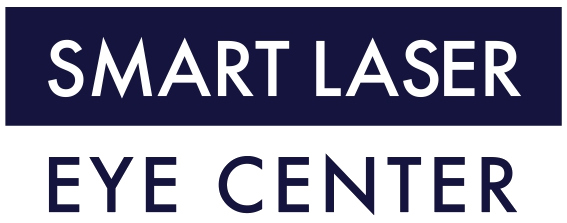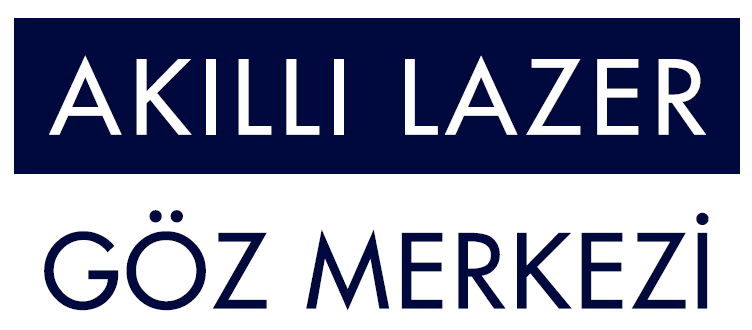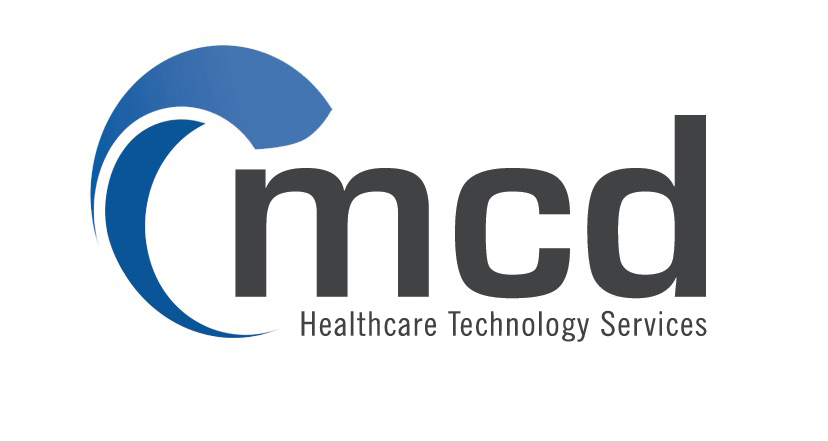Home »
Periodic Eye Examinations
Periodic Eye Examinations
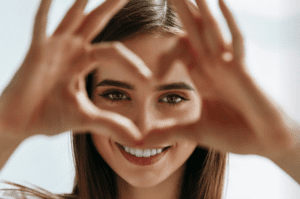
Why you should have regular eye exams?
Periodic eye examinations helps detect eye problems at earliest stage when they are most treatable. Regular eye exams give your eye care professional a chance to help you correct or adapt to vision changes. Also it will provide you with tips on caring for your eyes. And an eye exam can provide clues to your overall health.
When should an eye exam be done?
Several factors can determine how often you need periodic eye examinations, including your age, health, and risk of developing eye problems.
General guidelines are as follows:
Adults
In general, if you are healthy and have no signs of vision problems. We recommend having a full eye exam at age 40, when some vision changes and eye diseases are likely to begin. Based on the results of your scan, your eye doctor can recommend how often you should have periodic eye examinations in the future.
If you’re 60 or older, have your eyes checked once or twice a year.
Get your periodic eye examinations more often if:
- Those who use glasses or contact lenses.
- If you have a family history of eye disease or vision loss.
- If you have a chronic disease that puts you at greater risk of eye disease, such as diabetes.
- If you are taking medicines that affect the eyes and have side effects.
- Do you have eye problem now?
- Have you had eye problems in the past?
- Do you wear glasses or contact lenses? If so, are you satisfied with them?
- What health problems have you experienced in recent years?
- What medications do you take?
- Are you allergic to drugs, food or other substances?
- Have you had eye surgery?
- Does anyone in your family have eye problems such as macular degeneration, glaucoma or retinal detachment?
- Do you or your family have diabetes, high blood pressure, heart disease or other health problems that can affect the whole body?
We recommend that you prepare the answers to these questions for yourself before your eye examination.
Children aged 3 and under
Your child’s pediatrician will likely check your child’s eyes for healthy eye development. And look for the most common childhood eye problems – lazy eye, strabismus or misalign eyes. Between the ages of 3 and 5, a more comprehensive eye exam will look for problems with vision and eye alignment. Especially lazy eye is a disease seen in children and must be diagnose and treated until the age of 7 years. Unfortunately, there is no cure for amblyopia. Which is diagnose at an advanced age, and it usually leads to lifelong permanent vision loss in a lazy eye in children. Therefore, do not neglect to have your children undergo periodic eye examinations every year from the age of 2 to 7 years old.
School-age children and adolescents
Especially, have your child’s vision check before they start kindergarten. Your child’s doctor can recommend how periodic eye examinations should be done after that.
During the Eye Examination
A clinical assistant or biomedical technician may do some of the work. Such as taking your medical history and doing your eye tests.
An eye exam usually includes these steps:
- Measuring your visual acuity to see if you need glasses or contact lenses to improve your vision.
- Your eye pressure will be measure with a non-contact tonometry device.
- Your ophthalmologist may give you eye drops that dilate your pupil so that you can see inside your eye more easily.
- Your doctor may perform several tests to check your vision and the appearance and function of all parts of your eyes.
After inspection
Especially, at the end of your eye exam, you and your doctor will discuss the results of all the tests. Also including evaluation of your vision, your risk of eye disease, and preventive measures you can take to protect your eyesight.
Eye muscle test. This test evaluates the muscles that control eye movement. Your eye doctor watches as your eyes follow a moving object, such as a pencil or small light. Looks for muscle weakness, poor control or poor coordination.
Visual acuity test
Particularly, this test measures how clearly you see. Your doctor will ask you to identify different letters of the alphabet printed on a chart or a screen placed some distance away. The lines of text get smaller as you move down the chart.
Usually, each eye is tested individually. Aşso, your nearsightedness can also be tested using a card with letters kept at reading distance.
Fracture assessment
Especially, light waves bend as they pass through your cornea and lens. If the light rays do not focus completely behind your eye, you have a refractive error. Therefore, this may mean that you need some type of correction, such as glasses, contact lenses, or refractive surgery, to see as clearly as possible.
Evaluation of your refractive error helps your doctor determine a lens prescription that will provide you with the sharpest, most comfortable vision. Also, the assessment may determine that you do not need corrective lenses.
Your doctor uses a computerized refractor to measure your eyeglass or contact lens prescription and measures your refractive error.
Usually, your ophthalmologist will fine-tune this refraction assessment by having you look through a mask-like device with wheels through different lenses (phoropter). Therefore, your doctor asks you to decide which lens combination gives you the sharpest vision.
Bio-Microscopic examination
It is an eye microscope that magnifies and illuminates the front of your eye with an intense line of light through a microscope. Therefore, your doctor uses this device to examine the eyelids, eyelashes, cornea, iris, lens, and the fluid chamber between the cornea and iris.
Your doctor may use a dye, most commonly fluorescein, to color the tear film on your eye. Also, this helps reveal damaged cells before your eyes. Your tears wash the dye off the surface of your eyes pretty quickly.
Retinal examination
Sometimes called an ophthalmoscopy or funduscopy, this exam allows your doctor to evaluate the back of the eye. Also includes the retina, optic disc, and retinal blood vessels that feed the retina. Especially, enlarging your pupils with eye drops before the examination prevents your pupils from constricting when your doctor shines light on your eyes.
After giving eye drops, your eye doctor may use one or more of the following techniques to see behind your eye:
Direct inspection. Your eye doctor uses an ophthalmoscope to send a beam of light to your pupil to see the back of the eye. Sometimes eye drops are not necessary to enlarge your eyes before this examination.
Indirect exam. During this exam, you can sit in the exam chair or sit back. Your ophthalmologist examines the inside of the eye with the help of a condensing lens and a bright light mounted on the forehead. Therefore, this examination allows your doctor to see the retina and other structures inside your eye in great detail and in three dimensions.
Glaucoma screening
With Non-Contact Tonometry, the fluid pressure inside your eye is measured (intraocular blood pressure). Particularly, this is a test that helps your eye doctor detect glaucoma, a disease that damages the optic nerve.
Also, various methods are available for measuring intraocular pressure, including:
Non-Contact Tonometry (Non-Contact). Especially, this method uses a blast of air to estimate the pressure in your eye. No instruments touch your eyes, so you don’t need anesthesia. You will feel a momentary pulse of air in your eye, which can be frightening.
Moreover, if your eye pressure is above average or your optic nerve looks unusual, your doctor may use a pachymeter that uses sound waves to measure the thickness of your cornea. The most common way to measure corneal thickness is to put a drop of anesthetic into your eye and then gently touch with a small probe into contact with the anterior surface of the eye (cornea). The measurement takes seconds.
Depending on your age, medical history, and risk of developing eye disease, you may need more specific testing.
Inspection Results
Results of an eye exam include:
- Whether you need vision correction with glasses, contact lenses or surgery.
- Whether your eyes are healthy or if you have retinal disorders such as cataracts, glaucoma or macular degeneration or diabetic retinopathy.
- If you need corrective lenses, your doctor will give you a prescription.
Especially, if your eye exam reveals other abnormal results. Your doctor will discuss with you the next steps for further testing or treating an underlying condition.
Useful Links
Strabismus Crossed Eye Squint Treatments, Diabetic Retinopathy Disease. Macular Degeneration Treatments. Glaucoma Disease and Treatments. Retinitis Pigmentosa Disease and Treatments. Dry Eye Syndrome Treatments. Comprehensive eye exams (AOA Advisory).
Your Expert Eye Surgeons
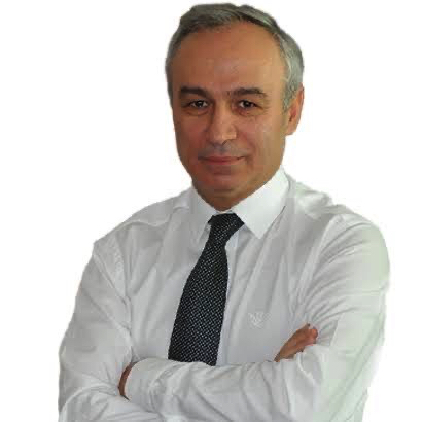
Education Information:
After graduating from primary school in Trabzon, Dr. Ofluoglu. He completed secondary and high school in Istanbul. He graduated from Istanbul University Cerrahpasa Faculty of Medicine in 1987. He successfully completed his ophthalmology residency at the Medical University of Vienna, Austria. He received his specialization equivalency in Turkey from Istanbul University Capa Faculty of Medicine . He worked as an Ophthalmologist at Taksim German Hospital between 1997-2014 as an ophthalmologist.Work experience:
German HospitalGalata Medical AcademyCertificates, Memberships, Scientific Publications:
- Articles Published in International Refereed Journals (Sci&Ssci&Arts And Humanities)
- Traenenwege from Die Endeskopie Der Ablrite. Akuchar, P. Novak,
- Ofluoglu FJ: Steinkogler. Spectrum Der Augenheikunde (1985)
- Volumersatz Der Orbita Myth Bioplastic. FJ Steinkogler, A. Kuchar,
- Novak, A.Ofluoglu Spektrum Der Augenheikunde
- Turkish Ophthalmology Association
- European Society Of Cataract And Refractive Surgeons
- American Society Of Cataract And Refractive Surgery
Specialized Treatments and Surgeries:
- Retractive Laser Eye Surgery: iLASIK (Femto Lasik), LASIK, LASEK, TransEpithelial PRK (NO TOUCH) and SMILE
- Cataract Surgery (Smart Lens Surgery)
- Keratoconus Treatments – Cross-Linking Surgeries
- Pterygium – Eyelid (Bird Wing) Surgery-
- Dry Eye Disease and Treatments
- Strabismus Treatments
- Glaucoma- Glaucoma Eye Pressure Treatments
- Diabetic Retinopathy – Treatments for Diabetes-Related Eye Diseases
- Macular Degeneration Disease Treatments
Foreign language:
- English
- German
MEDICAL UNIVERSITY of VIENNA
35 Years of EXPERIENCE
>35.000 Surgery
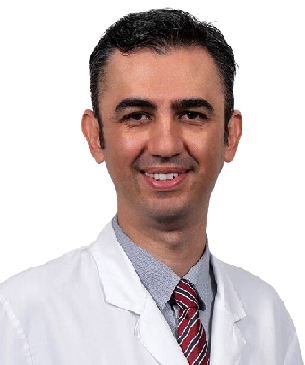
Education Information:
He graduated from Ankara University Faculty of Medicine in 2000 with the 4th rank. He completed his ophthalmology residency at Hacettepe University Faculty of Medicine . Between 2009 and 2011, he completed his master's degree in cornea, ocular surface and refractive surgery at Harvard Medical School in Boston, US. He qualified the title of associate professor in 2012 and Professor title in 2017 . He has performed over 15,000 surgeries in over twenty years.Academic achievements:
He has received numerous national and international awards (ARVO-Asia Travel Fellowship Grant Award, Gazi Eye Foundation 'Best Scientific Paper Award', ARVO Collaborative Research Fellowship Award, ICO Helmerich Fellowship Award, ICO WOC Fellowship Award, Royal College of) Ophthalmologists Best Reviewer Award, Turkish Academy of Sciences Outstanding Young Scientist Award). Koç University established its own research group with the support of KUTTAM, TÜBİTAK, TÜBA and ARVO.Awards, Memberships, Certificates:
- Ankara University Medical School, 4th rank in graduation (2000)
- International Council of Ophthalmology (ICO) “Basic Science Assessment in Ophthalmology including Optics and Refraction” Certificate (2004)
- International Council of Ophthalmology (ICO) “Clinical Science Assessment in Ophthalmology” Certificate (2005)
- Association for Research and Vision in Ophthalmology (ARVO)-Asia 'Travel Fellowship Grant Award' (2007)
- Gazi Eye Association Scientific Award (2008)
- TÜBİTAK ULAKBİM UBYT Awards
- Association for Research and Vision in Ophthalmology (ARVO) 'Collaborative Research Fellowship Award' (2009)
- TOD Glaucoma Symposium Best Oral Presentation Award (2009)
- TÜBİTAK 2219-Postdoctoral Research Fellow Award (2009)
- International Council of Ophthalmology (ICO) 'Helmerich International Fellowship Award' (2010)
- The Turkish Academy of Sciences (TÜBA) 'Outstanding Young Scientist Award' (2012)
- Association for Research and Vision in Ophthalmology (ARVO) 'Developing Country Eye Researcher Fellowship Award' (2015)
- Turkish Ophthalmology Society Scientific Award (2015)
- International Council of Ophthalmology (ICO) WOC2106 Travel Fellowship Grant Award (2016)
- Turkish Medical Association, Most Successful medical doctor of the year (2016)
- Turkish Ophthalmology Association
- Association for Research in Vision and Ophthalmology (ARVO)
- European Association for Vision and Eye Research (EVER)
- American Academy of Ophthalmology (AAO)
- American Society of Cataract and Refractive Surgery (ASCRS)
- European Society of Cataract and Refractive Surgeons (ESCRS)
Specialized Treatments and Surgeries:
- Corneal Transplant
- Complicated Cataract surgery
- Retinitis Pigmentosa Wharton jelly stem cell treatment
- Refractive Laser Eye Surgeries
- Keratoconus Cross-Linking
- ring therapy
- Hard-hybrid innovative contact lenses
- Dry eye (Autologous serum, IPL, LipiFlow treatment)
- Glaucoma (eye pressure)
Foreign language:
- English
- Turkish
Harvard MEDICAL School
22 Years of EXPERIENCE
>15.000 Surgery
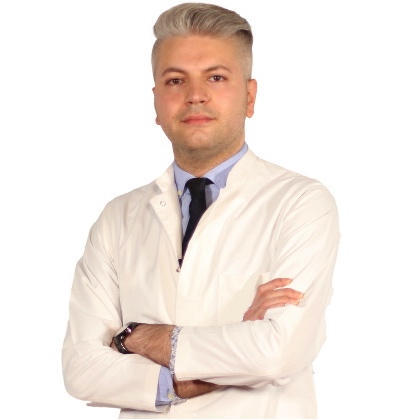
Education Information
He completed primary, secondary and high school in Baku. He graduated from Azerbaijan Medical Faculty in 2010. He completed his ophthalmology residency in Baku National Ophthalmology Center Azerbaijan . He was entitled to receive the Presidential Scholarship of the Republic of Azerbaijan in 2014, and completed the equivalence of specialization in Turkey in the Department of Ophthalmology, Faculty of Medicine, Selcuk University in 2014-2018, and worked as a research assistant and ophthalmologist at the university until 2018. He worked as an Ophthalmologist at Private LIV Hospital Nation between 2019-2022.Work experience:
- Selcuk University Faculty of Medicine
- Private LIV Hospital Ulus
Certificates, Memberships, Scientific Research:
- Peroperative developing choroidal detachment and its management.
- Surgical Approach in Posterior Polar Cataract.
- Iatrogenic retinal artery occlusion caused by cosmetic facial autologous fat filler injections.
- Effect of Smoking on Ocular Surface and Corneal Nerves.
- Lupus choroidopathy in a patient with discoid lupus erythematosus.
- Endophthalmitis and its treatment with early parsplanavitrectomy.
- Turkish Ophthalmology Association.
Specialized Treatments and Surgeries:
- Retractive Laser Eye Surgery: iLASIK (Femto Lasik), LASIK, LASEK, Trans Epithelial PRK (NO TOUCH) and SMILE
- Cataract Surgery (Smart Lens Surgery)
- Keratoconus Treatments – Cross-Linking Surgeries
- Pterygium Surgery
- Dry Eye Disease and Treatments
- Strabismus Surgery
- Glaucoma- Glaucoma Eye Pressure Treatments
- neuro ophthalmology
- Retinal Diseases Treatments
- Oculoplasty
- Uveitis Diseases
- Ectropion and entropion surgery – Eyelid deformity treatments
- Enucleation and Evisceration Prosthetic Eye Surgery
Foreign language:
- English
- German
- Russian
- Azerbaijani
- Turkish
MEDICAL UNIVERSITY of Selcuk
12 Years of EXPERIENCE
>8.000 Surgery
Your Expert Eye Surgeon
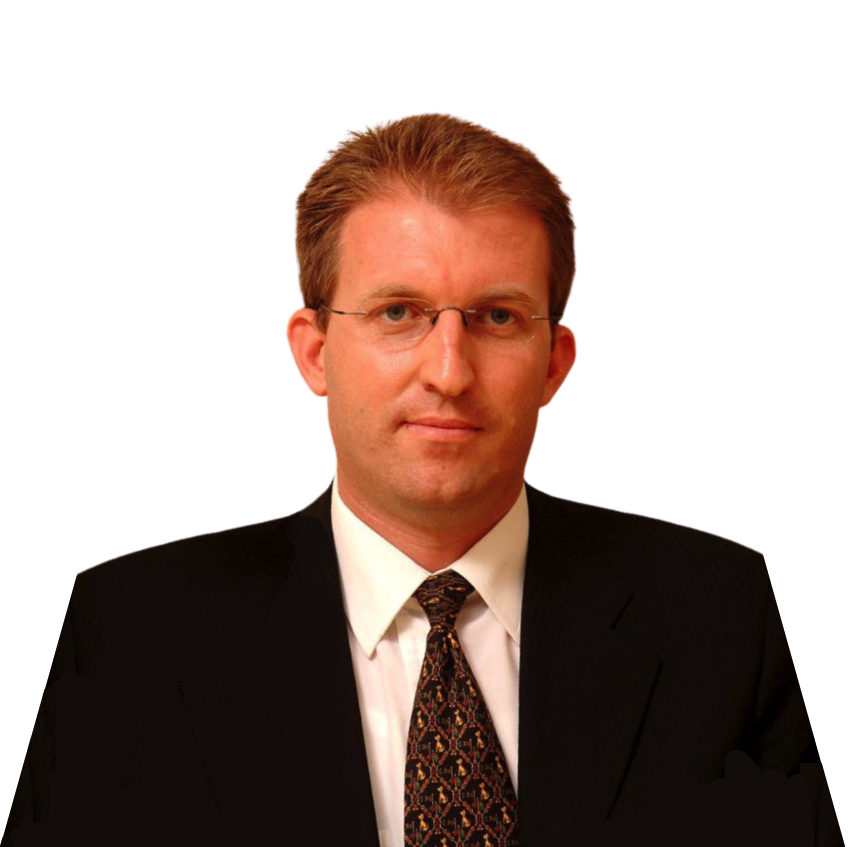
Education Information:
He completed his primary, secondary and high school education in Ankara. Fevzi Senturk graduated from Ankara University Faculty of Medicine with a degree in 1994, and subsequently received his Ophthalmology Specialization training from Eskisehir Osmangazi University Faculty of Medicine in 2000. Afterwards, Fevzi Senturk completed his Retina Fellowship at Istanbul Retina Institute and earned the title of Associate Professor at this institution. He is still continuing his academic career by taking the title of Professor at Istanbul Medipol University. He has focused his scientific and clinical studies on retinal diseases, Vitreoretinal surgery and cataract surgery.Awards,Memberships and Scientific Research:
- Retinal capillary hemangioma: AB interno surgical excision, 43rd National Congress Awards, Best Video First Prize, 2009
- Photodynamic therapy guided by indocyanine green angiography in chronic central serous chorioretinopathy, Turkish Journal of Ophthalmology, Best Publication Third Prize, 2000
- Retinal capillary hemangioma: AB interno surgical excision, 43rd National Congress Awards, Best Video First Prize, 2009
- Photodynamic therapy guided by indocyanine green angiography in chronic central serous chorioretinopathy, Turkish Journal of Ophthalmology, Best Publication Third Prize, 2000
- Vitreoretinal Surgery Techniques, Second Edition, Hayat Medicine Bookstore, 2008
- Eye Diseases and Anti-VEGF Therapy 2010.
- Ocular Electrophysiology (TOD Education Publications No 13) Meaning of VEP, VEP registration and parameters in ISCEV standards., 2011
- Clinical Eye Atlas (Oxford Atlases in Ophthalmology), 2012
- Imaging in Ophthalmology, Microperimetry, 2013
- Ocular Electrophysiology (TOD Education Publications 1st Edition), Multifocal Electroretinogram Recording and Evaluation, 2022.
- Current Vitreoretinal Surgery (TOD Education Publications), Surgical Anatomy of the Retinal and Vitreous, 2022.
- Turkish Medical Association
- Turkish Ophthalmology Association
- Turkic Republics Ophthalmology Association
- Electrodiagnostic unit board membership
- Electrodiagnostic unit training representative
- International Society for Clinical Electrophysiology of Vision (ISCEV)
Specialized Treatments and Surgeries:
- Macular Degeneration Disease and Treatments
- Retinal Detachment Treatments
- Retinal Hemorrhages Due to Diabetes and Hypertension and Their Treatments
- Retinitis Pigmentosa Treatments
- Central Serous Chorioretinopathy
- Retinal Vascular Occlusions
- Epirentinal Membrane
- Macular Hole
- Glaucoma eye pressure
- Neuroophthalmological Diseases
- Vitrectomy-Retina Surgery
- Intravitreal Injection Treatments
- Argon Laser Photocoagulation Treatment
- Photodynamic Therapies
Foreign language:
- English
MEDICAL UNIVERSITY of Ankara
28 Years of EXPERIENCE
>25.000 Surgery
Definitely avoid low-cost Eye Treatment
You may think that a cheap eye treatments is right for you. This might be fine if you're buying a cheap TV, but it's not worth the gamble with your eyesight. But as you know, having cheap eye surgery means sacrificing technology, physician quality, medical care and sterile conditions, and most importantly, taking risks. The issues that fall on a patient who wants to have cataract surgery and should pay the most attention; The hospital with the latest technology in cataract surgery and imaging devices, a sterile environment, and an experienced doctor and clinical team should be selected. We would like to remind all our patients that they only have two eyes and that the most important and most sensitive sense organ is their eyes.
None of these things are more important than your eye health, and we do not compromise on quality and cutting-edge technology. We offer you our prices in a very understandable, fair and affordable way.
There are no hidden costs in our pricing. We make eye treatments affordable for you.
